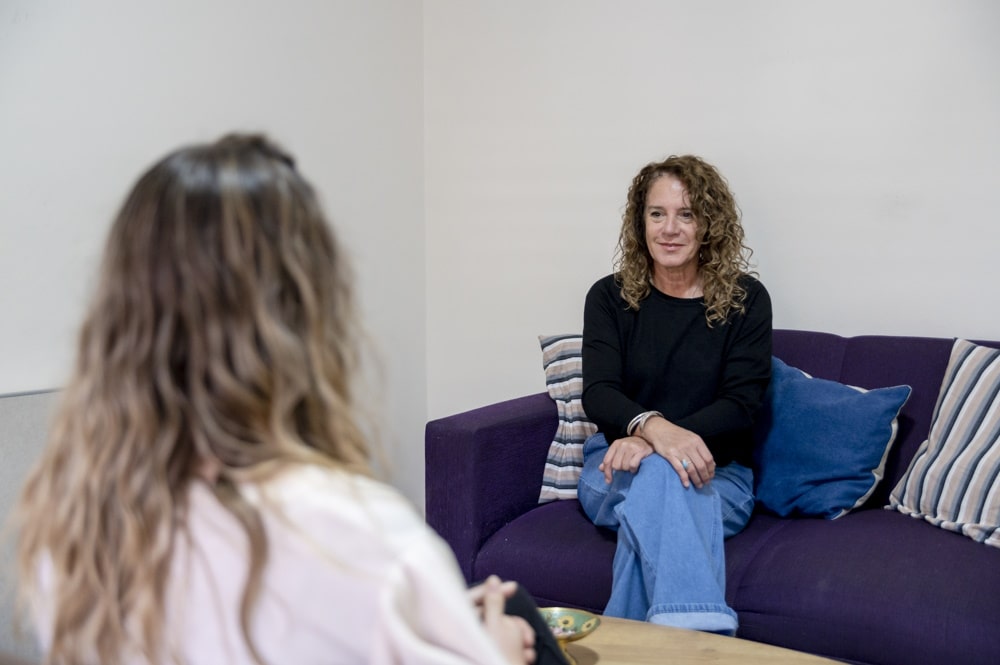Have you ever confided in a friend only to have them respond with a raised eyebrow or some disapproving words? Perhaps you’ve only encountered opposition or criticism after pouring your heart out to a family member.
If these types of interactions have left you feeling judged, you may be considering starting therapy to talk things through with an empathetic professional.
The primary objective of therapy is to improve your quality of life and resolve personal challenges. To do this, you’ll need to be vulnerable. You’ll be sharing thoughts, feelings, and experiences you may not initially feel comfortable discussing. I understand that it may be difficult to open up at first and may take time, especially if you’ve not felt safe doing so before.
With the right therapist, this process should feel natural. But, how do you know if your therapist is a good fit? Can you really trust them as you reveal your innermost thoughts and feelings? It’s common to feel concerned that the person sitting across from you may have negative opinions about you or what you’re saying.
I assure you that, as a therapist, judging you is the farthest thing from my mind. In fact, my whole practice is based on establishing a safe environment in which you feel free to be who you really are.
What Does a Judgement-Free Zone Mean in Therapy?
How do therapy sessions work? What does it really mean to be in a judgement-free zone during therapy? How many sessions of therapy do you need?
These are all common questions that my clients ask when they’re considering starting therapy. As a certified therapist, I aim to ease your doubts and answer all your questions.
Most of us are familiar with our inner critic, which often says things like, ‘You shouldn’t have said that’ or ‘No one will ever understand this about you.’, but in therapy, we want to encourage that voice to take a back seat.
In therapy, we appreciate and welcome all ideas, emotions, and experiences—both positive and negative. At my Cardiff-based practice, there’s no such thing as over-sharing. This is a safe space, and if you so choose a brave space, where you can explore your true self and let go of society’s expectations.
Therapists are taught to be attentive listeners so they can provide a safe and compassionate atmosphere in their sessions. Our job is to understand your experiences, with warmth and curiosity, prizing all that is shared – not to criticise them.
You can be certain that you’ll be met with empathy and compassion whenever you choose to share anything—whether it’s a regret from the past, a hardship you’re going through right now, or a fear that feels silly to you.
In my honest and open space, you can explore your innermost feelings and overcome obstacles you may be experiencing.
Can I Really Talk about Anything?
When you’re starting therapy, you may have many questions—‘How do therapy sessions work?’, ‘What can therapy help with?’, ‘Can I really say anything in therapy? What if it makes me look bad?’
Going to therapy may often seem like taking a leap of faith. It’s normal to be apprehensive, particularly when it comes to disclosing something that you may think is humiliating or shameful.
The whole point of therapy is to create a space where you can explore every corner of your mind and heart without fear of judgement.
Remember, therapists have heard it all. We’re equipped to deal with a broad spectrum of situations and feelings. Regardless of the nature of your concern, you’ll receive a compassionate listening ear without any suggestion of bias.
In fact, your therapist will be able to better grasp your situation and meet your requirements if you’re more forthcoming and honest with them.
Embracing Vulnerability in Therapy
Humans aren’t exactly known for being vulnerable. We tend to hold things inside and avoid exposing any ‘weaknesses’.
Opening up about how you really feel is a strength. And, although it may seem a little frightening at first, vulnerability is the key to meaningful healing and development throughout therapy. Your therapist will be better able to comprehend the depths of your issues if you’re more honest about them.
I know it might feel risky to be vulnerable when starting therapy. You might be worried about someone misinterpreting you, criticising you, or even taking advantage of your flaws. However, therapy provides a safe and supportive space where you can let go of your worries.
As your therapist, I’m here to support you and listen without judging you. We’ll carefully process your feelings and experiences together so that you can feel at ease and lower your guard.
There are many advantages to practising vulnerability in therapy. You typically end up gaining a better comprehension of your motives, habits, and self. It can also open the door to more fulfilling relationships and a greater sense of emotional freedom.
Making the first move toward vulnerability might feel daunting. But never forget that showing vulnerability doesn’t imply weakness. It’s the key to unlocking the transformative potential of therapy.
Start Your Journey Towards Healing With Mark Greenaway-Robbins
A judgement-free space is essential to the healing and personal development that may be achieved through therapy. If you still have questions like ‘What can therapy help with?’ or ‘How to know if your therapist is a good fit?’, get in touch with me. As your therapist, I aim to answer all your questions and provide a secure space where you feel free to explore your emotions.
Starting therapy can give you the space you need to heal and develop, regardless of the issues you’re facing. All ideas and emotions are welcome here, free from criticism.
If you’re ready to start your therapeutic journey or have any questions, please don’t hesitate to contact me. Together, we can create a safe and supportive space for your healing and growth.



